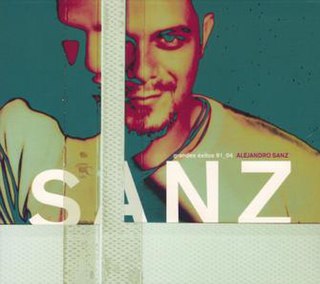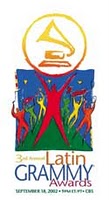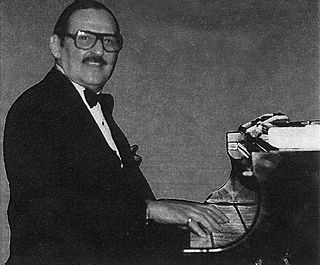Habana Abierta | |
|---|---|
| Origin | Havana, Cuba |
| Genres | Nueva Trova |
| Years active | 1996–present |
| Website | http://myspace.com/habanaabierta |
| Members | Vanito Brown Jose Luis Medina Luis Barbería Alejandro Gutiérrez |
| Past members | Boris Larramendi Kelvis Ochoa Pepe del Valle Andy Villalón |
Habana Abierta is a Cuban band. They are a member of a generation of composers, musicians, sculptors, authors, actors, etc. which emerged in the early 90s with its own identity in Havana, even though some of their creations had already been well known for some years in the island's cultural circles.
The origins of Habana Abierta go back to a personal project of music duo Gema y Pável, who wanted to produce a compilation of everything they and their peers had been doing in Havana clubs with hardly any resources. Initially, Luis Alberto Barbería, Pepe del Valle, Carlos Santos, Boris Larramendi, Superavit, Andy Villalón, Kelvis Ochoa and José Luis Medina, backed by the NUBENEGRA recording label, gave us a first glimpse released under the name Habana Oculta. In July 1996 most of them travelled to Spain (except for Carlos Santos, Raúl Ciro and Alejandro Frómeta: Superávit) to showcase their music at several festivals and clubs, and very soon spurred interest among audiences and the media alike, and even well-known Spanish artists and musicians. Ana Belén and Víctor Manuel, along with Ketama, were the first to show an interest and to take the initiative in a gradual and rich exchange with our Habana Abierta, which whom they made music in Spain. BMG Ariola asked Gema y Pável to come up with a project bringing a group of highly different singer-songwriters together on the album, based on the individuality of each member yet with combined expression of the diverse unity of Cuban music. Then Vanito Brown and Alejandro Gutiérrez joined what was to become Habana Abierta, recording a new album under this name.
They played over 80 gigs throughout Spain in 1997, 50 of them in Madrid and in 1998 recorded am album with the line-up down to 6, as Andy and Barbería had left to branch out on their own. With 24 Horas, the second album with Habana Abierta, an eclectic line was followed with some tracks from previous recordings, with a more defined fusion between popular Cuban music and funk, reggae and hip-hop. Rock and Pop Cuban-style with national roots: Van Van by Juan Formell, Irakere by Chucho Valdés, or NG La Banda by José Luis Cortés, refrains attributed to Matamoros over Red Hot Chili Peppers or Rolling Stones riffs. Conga-funk, timba-rock, bolero-hop, chachacha-blues, son and pop.... In January 2003, after six years in Spain, they returned to Cuba for a series of sell-out individual shows, with a performance by the Habana Abierta full line-up at La Tropical, playing to with over 10,000 people. This gave rise to the Habana Abierta documentary directed by Jorge Perugorría and Arturo Soto, which was presented at several film festivals.
Boris Larramendi, Kelvis Ochoa, Andy Villalón and Pepe del Valle have also been members of the band.
In 1998 they record "Habana Oculta", with the participation of Alejandro Frómeta and Raúl Ciro from Superávit. Already as Habana Abierta they record "Habana Abierta", "24 horas" and "Boomerang", this last one in 2006 with the collaboration of musicians such as Bebo Valdés and the arrangements of Alain Pérez.
Three of its members have recorded solo albums: Kelvis Ochoa recorded "Kelvis", Boris Larramendi "Yo no tengo la culpa" and Luis Barbería, "Luis Barbería". Kelvis Ochoa and Boris Larramendi were also the singers of Habana Blues Band, the band created after the success of the movie Habana Blues (directed by Benito Zambrano), winner of a Best Soundtrack Goya Award in 2006.
Nowadays Habana Abierta is about to present its new album, self-produced, and Vanito Brown is preparing his solo album with producer Robin Taylor-Firth.

The 4th Annual Latin Grammys were held in Miami at the American Airlines Arena on Wednesday, September 3, 2003. It was the first time the telecast was held outside of Los Angeles. Juanes was the night's biggest winner winning a record five awards including Album of the Year. He tied his own record winning five awards again five years later in 2008. Juan Luis Guerra and Calle 13 also tied this record in 2007 and 2009 respectively.

The 5th Annual Latin Grammy Awards were held on Wednesday, September 1, 2004, at the Shrine Auditorium in Los Angeles.
Edesio Alejandro Rodríguez Salva is a Cuban composer of electronic music. He has composed music for theatre plays, TV, and movies; as well as several concert compositions. Many of them experimental, using synthesizers and mixing together actors, dancers, and musicians in unusual line-ups (1).

Grandes Éxitos 1991–2004 is the first greatest hits album from Spanish singer-songwriter Alejandro Sanz. The album assembles his previous hits in two CDs; the first contains songs from 1991 to 1996 of the albums Viviendo Deprisa, Si Tú Me Miras, Básico and 3 and the second the hits from 1997 to 2004 of the albums Más, El Alma al Aire, MTV Unplugged and No Es lo Mismo. For this album, Sanz recorded two new songs, the single "Tú No Tienes Alma" and "Cuando Sea Espacio".

The 7th Annual Latin Grammy Awards were held for the first time in New York City, NY. The awards show was held at Madison Square Garden on Thursday, November 2, 2006. Shakira was the big winner winning Album of the Year, one of four awards that she won. She is the first female artist to win Record of the Year, Album of the Year, and Song of the Year.

The 1st Annual Latin Grammy Awards were held in Los Angeles at the Staples Center on Wednesday, September 13, 2000. The big winners were Luis Miguel, Santana and Maná with 3 awards; Juan Luis Guerra, Shakira, Fito Páez and Emilio Estefan Jr. received 2 awards each.

The 3rd Annual Latin Grammys were held in Los Angeles at the Kodak Theatre on Wednesday, September 18, 2002. Alejandro Sanz was the night's big winner, winning a total of three awards including Album of the Year. The ceremony returned in style after the 2001 ceremony was cancelled because of the September 11, 2001 terrorist attacks across America, and all presenters apologized to viewers during the broadcast for such.

Trova[ˈt̪ɾoβa] is a style of Cuban popular music originating in the 19th century. Trova was created by itinerant musicians known as trovadores who travelled around Cuba's Oriente province, especially Santiago de Cuba, and earned their living by singing and playing the guitar. According to nueva trova musician Noel Nicola, Cuban trovadors sang original songs or songs written by contemporaries, accompanied themselves on guitar, and aimed to feature music that had a poetic sensibility. This definition fits best the singers of boleros, and less well the Afrocubans singing funky sones or even guaguancós and abakuá. It rules out, perhaps unfairly, singers who accompanied themselves on the piano.
Cuarteto Patria is a musical group from Santiago de Cuba. It was founded in 1939 by Francisco Cobas la O, director, with Emilia Gracia, Rigoberto Hechaverría (Maduro) and Rey Caney. The original style was traditional trova, with boleros and some música campesina. In due course, the members and the music changed. By far the greatest change was the arrival of Eliades Ochoa.
Descemer Bueno is a Cuban singer, songwriter, and record producer. His first professional gigs were playing bass with Cuban troubadour Santiago Feliú.

The 11th Annual Latin Grammy Awards were held on Thursday, November 11, 2010, at the Mandalay Bay Events Center in Las Vegas, Nevada. It was the third time the annual event had taken place at this location. The eligibility period for recordings to be nominated was July 1, 2009 to June 30, 2010. Nominations were announced on September 8, 2010. On September 14, 2010 it was announced that the Latin Recording Academy Person of the Year honoree would be Plácido Domingo. The big winners of the night were Camila, Juan Luis Guerra and Gustavo Cerati with three awards.
Kelvis Ochoa is an author-composer-singer.
Roberto Carcassés is a Cuban jazz pianist. He was born on May 19, 1972, in Havana, Cuba. He has collaborated with many musicians, such as Chucho Valdés, Changuito, Wynton Marsalis, George Benson, and Descemer Bueno. He is the bandleader of the Interactivo collective.
Mario Pacheco was a Spanish record producer, photographer and entrepreneur.
Alejandro Gil Pinedo, better known as Alejandro de Pinedo is a Spanish musician, composer, author, music producer and chill-out music artist. He grew up in Jerez de la Frontera. During his teens he played guitar in a progressive rock band, named "Triunvirato". After graduating in telecommunications engineering in Madrid in 1987, he began working as a professional musician, touring internationally with Latin artists including Raphael, Georgie Dann, Maria del Monte and El Fary. In 1995, he started recording tracks in his own studio and founded the music label AGP Music.
Interactivo is a collaborative group of Cuban musicians, led by the pianist, singer and composer Roberto Carcasses. As an acknowledgement of their growing notoriety, the band has recently been the subject of a documentary directed by Tane Martinez, and premiered at the Havana International Film Festival in December 2010.
No Es Lo Mismo Tour is a concert tour by Spanish singer Alejandro Sanz as promoting his album No Es Lo Mismo.

Julio Gutiérrez was a Cuban music director, pianist, composer and arranger. He was one of the main figures in the music scene of Havana in the 1940s and 1950s, and a pioneer of the descarga. As a songwriter, he is remembered for his 1944 bolero "Inolvidable", which has been performed by numerous artists.
Dayramir Gonzalez Vicet is a Cuban pianist, composer, arranger, and producer.

The 20th Annual Latin Grammy Awards was held on Thursday, November 14, 2019 at the MGM Grand Garden Arena in Las Vegas, Nevada and was broadcast on Univision. The telecast marked the 20th anniversary of the Latin Grammy Awards and honored outstanding achievements in Latin music released from June 1, 2018 to May 31, 2019.